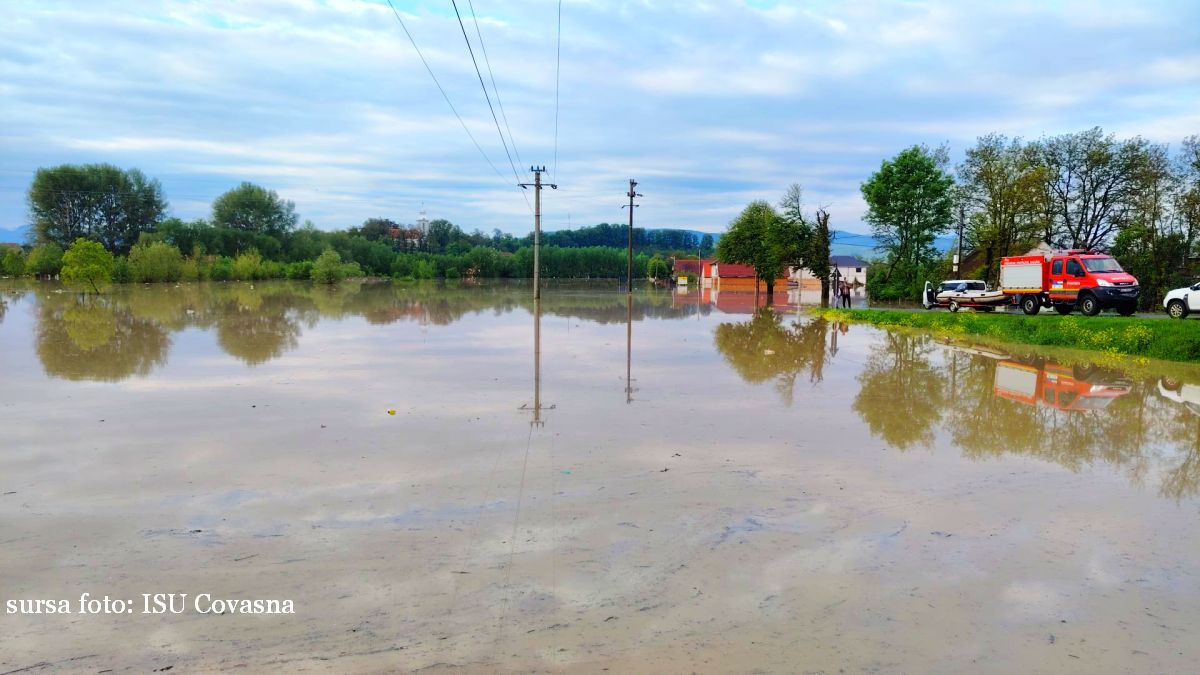Heavy rainfalls take their toll on Romania
Rising water levels, fallen trees, blocked roads are the results of the heavy rainfalls that have lately affected Romania

Daniela Budu, 30.05.2025, 14:00
Romania has again seen a series of alerts for heavy rainfalls with scores of towns and villages affected and hundreds of people evacuated across the country. A couple of days ago the National Meteorology Agency issued a series of yellow and orange alerts for heavy downpours and gale-force winds for most of the Romanian regions while the National Administration of Hydrology has cautioned against major risk of flooding in eastern Romania.
Red alerts for rising water levels have been issued for rivers in 12 counties in Transylvania, central Romania, Moldova, in the east, and Muntenia in the south. Yellow and orange alerts have been issued for numerous other rivers while teams made up of experts with the Romanian Waters administration, firefighters and from other structures have been deployed to the affected areas to reduce the flooding effects.
The Romanian Waters has deployed no less than 6 thousand people to the affected areas and locals have been evacuated from the regions with a high flooding risk. Numerous RO-alert messages have also been issued and according to the latest toll, heavy rainfalls have caused damage in more than 200 towns and villages in 30 Romanian counties while over 500 people have been evacuated. The counties of Braşov and Covasna, in central Romania, Botoşani and Neamţ in the north-east, Vrancea and Bacău in the east are bearing the brunt of the latest heavy rainfalls. Romania’s Environment Minister, Mircea Fechet, who has visited the county of Covasna, has pledged subsidies for all the works needed to rebuild the county’s anti-flooding infrastructure, such as flood control dams and other complex works.
Road traffic has been blocked on several national and county roads by landslides and fallen trees. Several vehicles have been damaged.
Landslides have also affected railway traffic in several regions and local county authorities have applied for immediate government intervention at Praid, one of Romania’s most famous salt mines, which runs the risk of being destroyed by the heavy rainfalls. Any mining activity has been stopped as the local authorities estimate the water flow was 100 times higher than usual. Romania’s new president, Nicuşor Dan, has called for the rapid intervention of the authorities whenever needed, which are to take urgent measure for saving lives and protecting goods in the affected areas. He has also underlined that it is vital that Romania invest in surveillance and alert systems and resilient infrastructure adjusted to the new climate risks as well as in training the local authorities to be able to respond in crisis situations.
(bill)






























